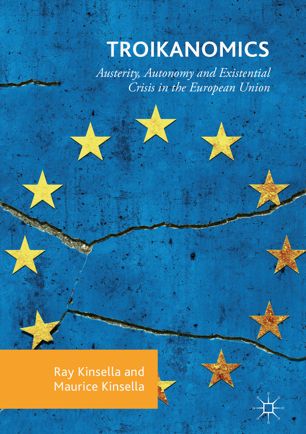

Most ebook files are in PDF format, so you can easily read them using various software such as Foxit Reader or directly on the Google Chrome browser.
Some ebook files are released by publishers in other formats such as .awz, .mobi, .epub, .fb2, etc. You may need to install specific software to read these formats on mobile/PC, such as Calibre.
Please read the tutorial at this link. https://ebooknice.com/page/post?id=faq
We offer FREE conversion to the popular formats you request; however, this may take some time. Therefore, right after payment, please email us, and we will try to provide the service as quickly as possible.
For some exceptional file formats or broken links (if any), please refrain from opening any disputes. Instead, email us first, and we will try to assist within a maximum of 6 hours.
EbookNice Team

Status:
Available4.4
37 reviewsThe ‘Troika’ is a word that is scorched into the narrative of the EU’s banking and economic crisis – a triumvirate constituted by the European Central Bank, the European Commission and the International Monetary Fund. The modus operandi of the Troika is defined by the authors of this book as ‘Troikanomics’.
Ostensibly, the role of the Troika was to develop, coordinate and oversee the provision of conditional funding to support national governments in restructuring their economies. In fact, their power and influence extended far more widely. They enforced an unprecedentedly severe austerity programme of fiscal and structural adjustment through oppressive political oversight. Their practical impact was to impose on debtor countries in the EU periphery the single greatest economic and social dislocation in Europe’s recent history, thus corroding their autonomous capacities and enfeebling their national sovereignty.
The Troika’s word was law in those countries where its writ ran – Greece, Ireland, Cyprus, and to a more limited extent, Spain. It was answerable only to a trio of unelected organisations, far removed from the consequences of its policies on the lives of citizens. Widespread socio-political reaction to Troikanomics gave shape to the anti-austerity movement across the EU, characterised by the centre as ‘Populism’.
This book provides a timely response to the revisionist argument that there is no longer a ‘crisis’ in Europe. In their innovative analysis, the authors argue that Troikanomics is a manifestation of a deeper existential crisis within the EU that encompasses the centralisation of power, Brexit, Europe’s ominous militarisation and the progressive abandonment of its foundational values.